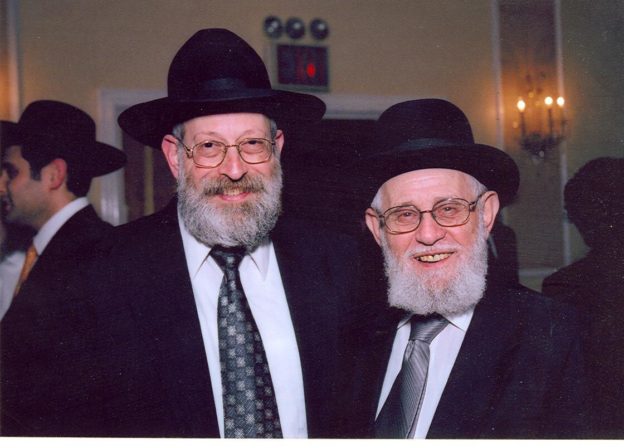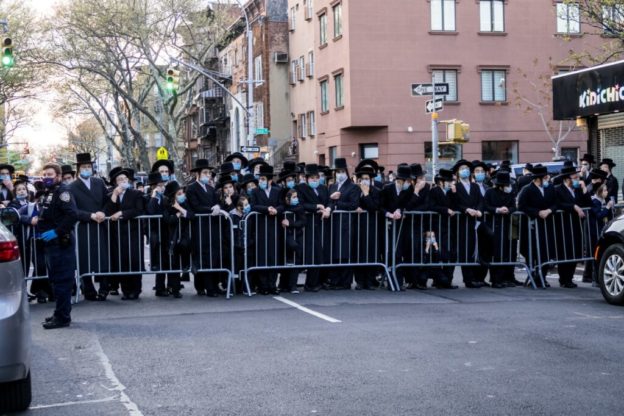For some of us, double-edged swords don’t come more
dangerous than the prospect of a Jewish president. The accomplishment would be
heartening in a way, and would say much about America. But the reality of a Jewish
person sitting in the White House would not please people infected with the
derangement we call anti-Semitism. And we have more than enough of that as is,
thank you.
To be sure, unless the current Commander-in-Chief is removed
from office (not likely) or the Electoral College is abolished (less likely),
the race for the Democratic candidacy will probably prove to be only a contest
to determine who will be defeated by President Trump in November.
Still, it is noteworthy – and fear-worthy, for the
above-mentioned some of us – that, back in the 1950s, two currently viable
viers for the highest office in the land celebrated bar mitzvahs.
Both are ex-mayors: Senator Bernie Sanders, of Burlington,
Vermont; and Michael Bloomberg, of New York. The former is a populist progressive
backed by a strong grass-roots movement; the latter, a savvy, successful
businessman backed by an impressive record and the willingness to spend a
billion dollars of his own money on his campaign.
And both are touting their tribal credentials, to appeal to
Jewish voters.
“I’ve spent a lot of time in synagogues in my life,” Mr.
Bloomberg told a packed Jewish venue in Miami last week, “but my parents taught
me that Judaism is more than just going to shul. It is about living our values…
and it’s about revering the miracle that is the state of Israel, which – for
their generation – was a dream fulfilled before their very eyes.”
In oblique criticism of Senator Sanders’ democratic
socialism, he joked that “I know I’m not the only Jewish candidate running for
president. But I am the only one who doesn’t want to turn America into a
kibbutz.”
Continuing his bombing of Bernie, who has indicated he might
withhold military aid from Israel if it didn’t better address humanitarian
needs of Gazans, Mr. Bloomberg pledged to “never impose conditions on our
military aid [to Israel], including missile defense – no matter who is Prime
Minister.”
And, of course, after speaking at length about recent acts
of violent anti-Semitism, he attacked Mr. Trump, associating him obliquely, and
unfairly, with “racist groups” that “spread hate.”
“A world in which a president traffics in conspiracy
theories,” he went on to declare, “is a world in which Jews are not safe.”
For its part, the Sanders campaign rolled out its own Jewy
video last week, which began with a clip of the senator, at a J Street
gathering last year, proclaiming that “I’m very proud to be Jewish, and look
forward to becoming the first Jewish president in the history of this country.”
At that gathering, Mr. Sanders declared: “If there is any
people on Earth who understands the dangers of racism and white nationalism, it
is certainly the Jewish people.” And, in his own swipe at the president, he
added: “And if there is any people on earth who should do everything humanly
possible to fight against Trump’s efforts to try to divide us up… and bring
people together around a common and progressive agenda, it is the Jewish
people.”
And, although he accuses the current Israeli government of
unfairness to Palestinians, he calls himself “somebody who is 100 percent
pro-Israel.”
Fighting anti-Semitism and declaring support for Israel may
please many Jewish political palates, and, b”H,
remain pretty much de rigueur positions
for any serious presidential candidate.
But office contenders seeking Jewish votes these days would
be wise to not ignore American Jewry’s Orthodox segment. It may be a fraction
of the country’s Jewish population (around 10%, it’s estimated) but it is a
fraction that, according to sociologist Steven M. Cohen, has more than quintupled over the past two generations,
and stands, b’ezras Hashem, to
continue its growth.
According to the Pew Research
Center, more than a quarter of American Jews 17 years of age or younger are
Orthodox. Public policy experts Eric Cohen and Aylana Meisel have estimated
that, by 2050, the American Jewish community will be majority Orthodox.
We Orthodox, like most other Jews, are greatly concerned
about Israel’s security and about rising anti-Semitism. But, in addition to those
issues, a major item on our political agenda is education.
We believe in school choice – that parents are the best
arbiters of what schools their children should attend, and should not be
financially penalized for not choosing public schools. And we consider it
critically important that government involvement in determining the content of
curricula in private schools be minimal.
Senator Sanders is officially on what we consider the wrong
side of both those issues. Mr. Bloomberg, while he has long been a proponent of
educational choice with regard to things like public charter schools, hasn’t
taken a public position on either of our own educational concerns.
It’s not too late for him to do so, of course, and, as
someone who fundamentally understands the importance of educational options, he
might come to see the sense and fairness in our positions.
From a political perspective, it would be wise.
More important, though, from a Jewish perspective, it would
be right.
© 2020 Hamodia








